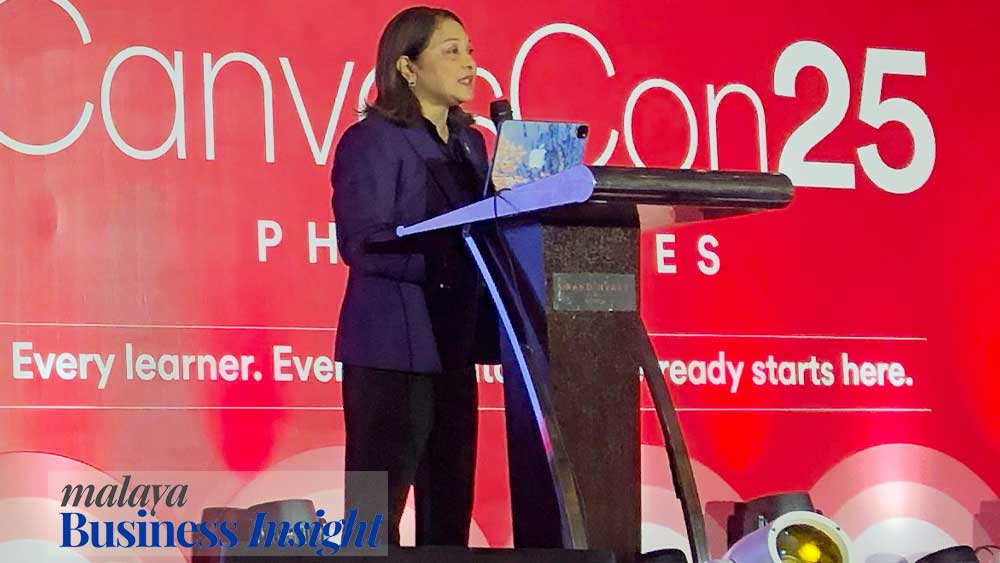Higher Education Commissioner Ethel Agnes Pascua-Valenzuela on Wednesday urged educators in the Philippines to act “with urgency” to address the country’s lagging competitiveness in the global artificial intelligence (AI) economy.
Citing the rapidly evolving artificial intelligence (AI) landscape and its multi-billion dollar economic impact, Valenzuela in her speech at the CanvasCon25 educators’ summit in Bonifacio Global City, Taguig, raised alarm over the Philippines’ lack of national policy to guide the use of AI in education.
She said the Philippines submitted zero entries to a recent United Nations Educational, Scientific and Cultural Organization (UNESCO) information and communications technology (ICT) award focused on AI in education.
Valenzuela was a member of the UNESCO HQ International Jury on ICT Awards in Education 2023 and the International Council of Distance Education (ICDE) Prize of Excellence Award.
“Unlike neighboring countries — I have seen Cambodia with three submissions; Malaysia, four; Indonesia, [submitted]; Thailand, 2. No entries from the Philippines,” Valenzuela said. “We have 100 entries from all over the world, and we don’t have entries on the use of AI in education from our country.”
CanvasCon25 is an annual educators’ conference organized by Instructure, a US-based cloud LMS solutions provider and developer of the Canvas LMS used by educational institutions worldwide. The event focused on future-proofing education through technology, inclusivity, and systems simplification.
A key hurdle
A key hurdle is the current enrollment trend in the Philippines, with only 800,000 students enrolled in ICT programs out of 5 million college students. “We really lack a supply of AI workforce. We need to change the direction and the trend,” Valenzuela said.
This gap highlights a critical need for greater AI literacy and promotion of local innovations, she said.
To address the workforce shortage, Valenzuela revealed details of the National AI Workforce Development Plan, a collaboration between the Commission on Higher Education (CHED), Technical Education and Skills Development Authority (TESDA), and other government agencies.
The plan sets ambitious targets by 2028, including the generation of one million AI-literate general workers, 10,000 AI developers, 3,000 AI engineers and 2,000 AI experts.
Micro-credentials as alternative
Valenzuela also pointed to the newly issued CHED Memorandum Order (CMO) No. 1 Series of 2025 or the “Guidelines for Micro-credential Development, Approval and Recognition in Higher Education,” which provides a framework for accrediting short, industry-driven courses in skills like AI.
With formal curriculum changes often taking years, she said CHED is promoting micro-credentials as an alternative. “If students will take micro-credentials on AI, Internet of Things and data sciences, they can take those courses and ask for accreditation,” she said, encouraging institutions to develop and offer such programs.
While a formal generative AI policy is still in development, Valenzuela outlined CHED’s seven-point agenda for integrating AI into higher education. This focuses on governance, upskilling, research, and promoting ethical and transparent use.
“AI is no longer the future but is already here,” Valenzuela said. “We need to upgrade skills and hopefully, AI can make our lives easier and make our world better.”





